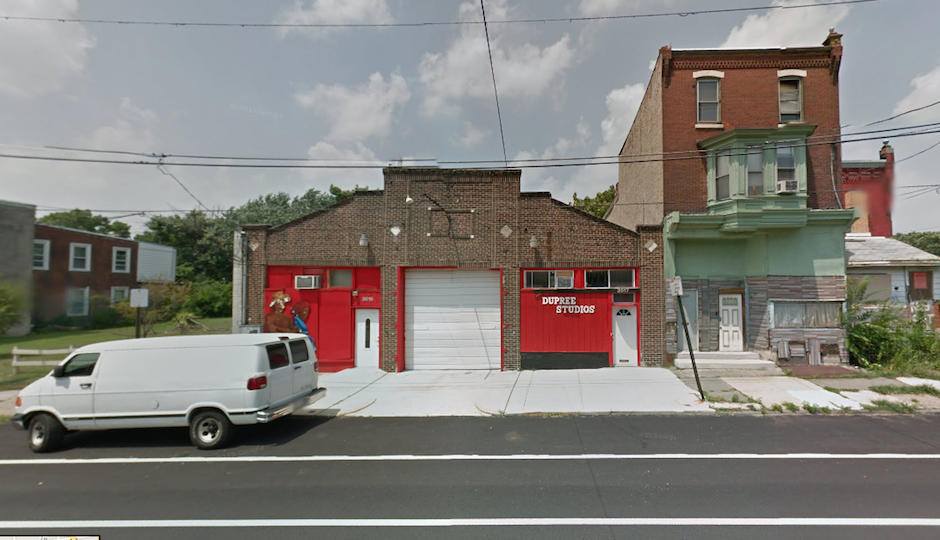Time to Fix Eminent Domain

James Dupree’s studio.
Congratulations to James Dupree.
After a long fight with the Philadelphia Redevelopment Authority (PRA), the artist last week learned that he can keep his studio in the Mantua section of the city. The fight began back in 2012 when the PRA, citing the city’s eminent domain authority, seized his property and offered him what they considered a fair market value to vacate. Dupree disagreed on that. The PRA claimed, and still claims, that the area is a “food desert” and needed his block so that a private developer could build a supermarket. Dupree also disagreed. “Nothing could be further from the truth,” he said. “A developer could easily build around my studio or on the vacant block next to me.”
The reasons can be debated. But there’s one thing that requires no debate: The eminent domain process has to change. Eminent domain is defined as: “The power of the government to take private property and convert it into public use. The Fifth Amendment provides that the government may only exercise this power if they provide just compensation to the property owners.”
Dupree has not been the only person fighting this rule. As I write this, a New York state assemblyman is trying to use eminent domain as a means for the state to take over a failed community center in Brooklyn, with the reported intent of scaring the building’s owners to negotiate a deal for the property at a lower price. An Idaho woman’s property is in danger of being seized by the state for the purpose of a wastewater treatment facility. In California there is now a proposal “…from a member of San Francisco’s Board of Supervisors (that) would use eminent domain to take over loans on a property with a market value below the mortgage amount. A lawmaker says it would help minorities in the city of about 837,000, while some officials see the move increasing borrowing costs and discouraging investors.” A District of Columbia councilman is campaigning to seize the land currently used by a private trash transfer station for the city’s use.
The problem with eminent domain is not the reasons why. Often there are valid reasons. Dupree’s neighborhood may very well be “a food desert” and in need of a supermarket. The community center in Brooklyn might do better under city control. The woman in Idaho and the private company in D.C. could very well be sitting on land that that’s needed by others for public services. The building in San Francisco could be standing in the way of developing a better neighborhood. I don’t believe that our public servants are battling to take over the world or hurt individual citizens. I do believe that they believe that they are doing the right thing and carrying out the wishes of the people who voted them into office, or in the case of the PRA, assigned them to the job.
But Dupree’s case brings to focus the true issue with today’s eminent domain laws: It’s not why, it’s who.
Who should ultimately decide if a department of the City of Philadelphia or San Francisco or the states of New York or Idaho has the legal right to take away a citizen’s property? Who was responsible for forcing James Dupree to spend untold thousands of dollars to defend himself, upending his life, engaging the amazing services of the Institute for Justice (a D.C. based civil rights organization) and holding fundraiser after fundraiser for the sake of a decision to build a local supermarket? Who determines whether a supermarket is more important than a community center? If a trash transfer station is more important than a water treatment facility? Or if one building is standing in the way of economic development?
These are valid issues. But these are issues that should not be decided upon by just a government office. This is private property, not government property. If Dupree’s experience has taught us anything it’s that the system has to change. Eminent domain issues should be decided upon by a council of both public and private members of their local communities. In some cases, depending on the size or importance, the issue should be put up for a vote.
Eminent domain will only become a bigger problem nationally in the years to come. In Philadelphia alone, the skyline around Penn and Drexel (which borders Dupree’s art studio neighborhood) is dramatically changing which means that the both universities’ growth plans are inevitably going to infringe on its neighbors. Other cities are experiencing a renewal of their downtown areas and their own increases in population. Yes, supermarkets, waste treatment facilities and community centers are going to be needed to serve these growing communities. And some private land is going to be in the way. Rather than the government just grabbing it, now is the time to fix the process.
Follow Gene Marks on Twitter.


